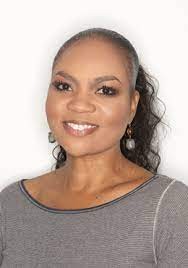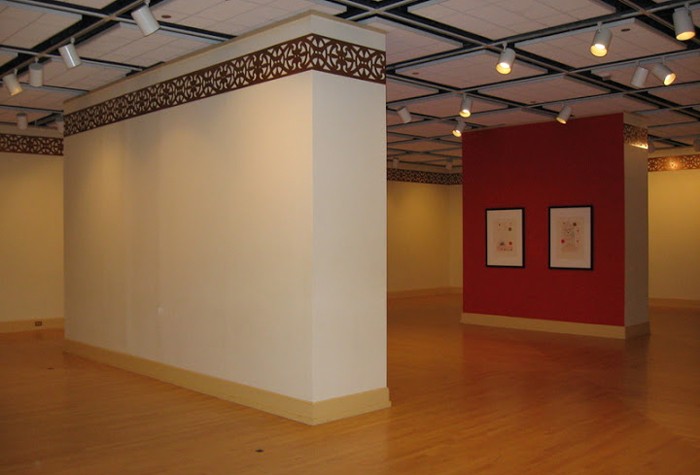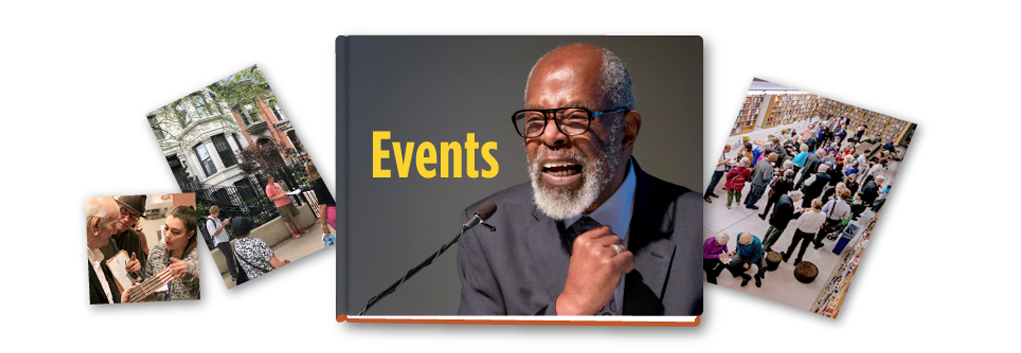The First Randall Albers Young Writers Award
Wednesday, May 10, 2023
Writers, contrary to Hollywood stereotypes, do not materialize in a magical poof, or rise to prominence on the wings of talent alone. Becoming a serious, productive writer requires labor, learning, grit, determination. And support. There is perhaps no apprenticeship longer than that which the average writer undergoes. So much reading. So many drafts to critique and be critiqued. So much craft to develop. So much experience, life and literary, to accumulate. Along the way, the majority of aspirants give up the dream; too little demand, no tangible rewards.

The Chicago Literary Hall of Fame established the Randall Albers Young Writers Award as a way to encourage and support writers in an early developmental stage. We named the award after our former board president, who in a lengthy academic career, mostly at Columbia College Chicago, has mentored hundreds of writers, many of whom have gone on to notable success.
“Above all, young writers need to keep writing,” Albers said. “We hope that, with this contest, they will do just that. It takes confidence, even boldness, to put a story together, and more boldness to submit it to a contest. I believe that if they do submit, they will feel some justifiable pride, whether they win a prize or not. And maybe they will continue to submit because of that increased confidence and pride. And ideally, they will go back to their schools, tell the story of their submission, and encourage others to do the same.”
Submissions for this inaugural contest opened in February, and over the course of the next month more than a hundred stories by more than a hundred different young writers arrived. Carrie Muehle, CLHOF Associate Board president and former TriQuarterly Managing Editor, orchestrated the contest, as well as the upcoming ceremony to honor the winners. She said, “We were so impressed by the level of quality and creativity demonstrated in each and every piece. If we learned one thing over the course of reading and judging these entries, it’s that Chicago’s literary standing is very much secure.”
Final judge Alexis Pride, author of Where the River Ends and Associate Professor at Columbia College Chicago, concurred. She identified in the submissions several elements common to engaging storytelling, including strong narrative voices, vividly seen action, well-developed characters, and fully formed story arcs. She said that the winning stories built dramatic tension and anticipation for what happens next.
“The writers are very talented,” Pride said. “They are imaginative and very skilled. They know how to tell a good story and engage an audience. They clearly have a passion for the art of creative writing. These young writers are telling stories they want to share; they are discovering their voices, and even now, are forging their place in the world with their writing. They are the published authors, writing teachers, editors, and agents of tomorrow—among other platforms where their talents will be welcomed. And seeing how gifted they are shows they are going to be well prepared for what’s ahead.”
Young writers often struggle to find real opportunities, outside the classroom, to showcase their work. For Charlotte Hensley, whose story “Stratified” captured our second-place prize, her participation was a meaningful step in her literary development.
“As a high school student, there aren't a ton of good opportunities to get recognized or to share my work,” Hensley said. “This award is a chance to have both of those things, and it feels very validating. It's really nice to know that people read my work and saw something in it. This encourages me to continue to develop my voice and work toward becoming a professional writer.”
For Nadia Raza, whose story “Jack of All Trades” won honorable mention, the contest gave her an opportunity to explore and expand her literary sensibilities, which did not heretofore find easy support. “I was ecstatic to hear that I received an honorable mention for my piece because previously, I had shown this work to other teachers who liked the idea of the story, but found it dull without ‘real’ conflict or action,” she said. “I understood what they meant, but I wanted a story where the main character was already developed as someone who knew what they wanted in life so I could explore the idea of what happens to main characters after their Hero’s Journey is over - if it ever really ends.”
Sariyah Hardy’s story “Grandfather” won fourth place in the contest. She said that being acknowledged in this way encourages her to write more, and write better. “It means hope for the future,” she said. “Winning fourth place is a huge honor, especially considering that this is the first formal writing competition that I’ve entered. It makes me hopeful for what I’ll be able to achieve as I hone my skills, and attempt to perfect my writing style.”
Rory Dwyer, who won honorable mention for her story “Quin,” participates in theatre and singing as a junior at Grayslake North High School, where she is a part of her school’s Motown band, Slam Funk. She said she loves writing about discoveries she makes. “I was inspired by what I’ve learned in Psych club from Mrs. Dodd,” she said. “She fueled my interest in the human brain, and I love unmasking how individuals experience life differently. I also hope to promote acceptance, as each person deserves to feel loved.”
Analise Budziak’s winning story, “A Trick of the Light,” showed that young writers already possess the ability to write at high levels. Their atmospheric, suspenseful story explores the ethereal and real in nuanced ways. “I woke up one morning when it was still dark outside and looked out my window, and a single lamp was on inside the neighbor’s house,” Budziak said. “Somehow that conjured the image of a distant light across a foggy bay, and before I knew it it had grown into some kind of ghost story. It’s really exciting for me to have won a writing award! I hope to become a published novelist, and I’ll be majoring in creative writing in college, so it means a lot for me to have done so well and have this experience.”
In a city with a rich literary tradition, amidst a bounty of highly accomplished contemporary writers, the next Gwendolyn Brooks or Nelson Algren or Sandra Cisneros is never assured. For each heralded writer in Chicago’s pantheon of important literary contributors, there is a story of how they punctured the netting that keeps young artists on the outside looking in. Sometimes, that story is about a teacher or mentor, sometimes about a lucky break, sometimes about an opportunity seized. Writers who thrive generally receive nurturing: encouragement, support, and eventually validation.
“The most obvious reason we need a contest like this is to encourage young writers to keep writing, keep developing their storytelling capabilities,” Albers said. “If financial prizes help do that, we will have done our job. The Chicago Literary Hall of Fame seeks to honor the writers of the past and celebrate the best of living Chicago writers, but the mission also speaks to building the future by nurturing the next generation. This contest helps realize that third part of the mission.”
Not everybody received a prize or an honorable mention, of course. There were many high-quality stories that didn't make the final cut. That was more a

product of the competitive field rather than an indictment on any individual story or writer. The hope is that all the entrants push to maximize their talents. The dividends will be for these writers as well as their future readers.
“This was a difficult task because there were so many great writers and stories to choose from,” Pride said. “My advice to all the writers is to keep writing. You have so much talent and a promising future in the literary arts. Writers have always played a significant role in shaping the world in which they live. I believe you’ll have your opportunity, as well. We await your words!”
Albers envisions an expansion of the contest as it moves into its second, third, fourth, 30th year. He sees the possibility of including middle-school writers and rewarding creative nonfiction, poetry, maybe even one-act plays, in addition to fiction.
Albers is uniquely equipped to anticipate the ways in which this initiative might help young writers. As Professor and Chair Emeritus of Fiction Writing at Columbia College Chicago, Albers ranks as one our very best educators over the past four decades. He received the Columbia College Teaching Excellence Award, and is a Story Workshop® Master Teacher. As chair of the Fiction Writing Department, he fostered innovative interdisciplinary and community-based arts work in Chicago, and led development of abroad programs in Moscow, Prague, Florence, Bath, and Rome. He was founding Producer of the long-running Story Week Festival of Writers. He has been a visiting professor at England’s Bath Spa University, has lectured at the Royal Melbourne Institute of Technology, and has presented at numerous national and international conferences on the teaching of creative writing. His fiction, creative nonfiction, and scholarly work have appeared in a litany of magazines and journals. He authored, along with Steve May, the lead article in Creative Writing and Education, edited by Graeme Harper. Two chapters from his novel-in-progress, All the World Before Them, have been nominated for a Pushcart Prize, and a third excerpt is scheduled to appear in the upcoming issue of Hypertext.
“The contest becomes a showcase for the best of Chicago writing by young people across the area, from different neighborhoods and representing different backgrounds,” Albers said. “People beyond Chicago need to understand that this city is a hotbed of writing talent and that plenty of young people are focused on creativity. That represents a great hope for the future, one that we hope is contagious. All of this expansion would be another terrific movement toward building a powerhouse city of writers, as the Chicago Literary Hall of Fame always seeks to do.”

With this first contest, the Chicago Literary Hall of Fame established the framework for a long, continuous tradition. The Associate Board, led by Muehle, instituted standards and processes to ensure widespread participation, fair assessments, and recognition. Donors made significant contributions to make this and future contests viable. Teachers, writers, and administrators across the city encouraged their networks to take part.
The ceremony this coming Saturday, May 13, is not only a celebration, but more opportunity. The Harold Washington Library’s Reception Hall is a grand, awe-inspiring setting. The winning authors will get a chance to read their work aloud, and the honorable mentions will also be acknowledged. For most participants, this will be their first opportunity to share their work with a live audience. Albers points out that this has benefits for readers, who will begin to sift out what works and doesn’t, as well as listeners, who might get a sense of what to try out in their own work.
More than anything, though, the ceremony, which begins at two p.m., is meant to be a celebration and an invitation to participate.
“Finally, this contest is meant to highlight for each entrant that they have entered a community of writers,” Albers said. “They feel part of something larger than themselves. It breaks down the writer's sense of isolation and shows that writing can be social, can be fun.”
There are limited seats remaining, but it’s not too late to register. Register now.
Donald G. Evans is the author of a novel and story collection, as well as the editor of two anthologies of Chicago literature, most recently Wherever I’m At: An Anthology of Chicago Poetry. He is the Founding Executive Director of the Chicago Literary Hall of Fame.








